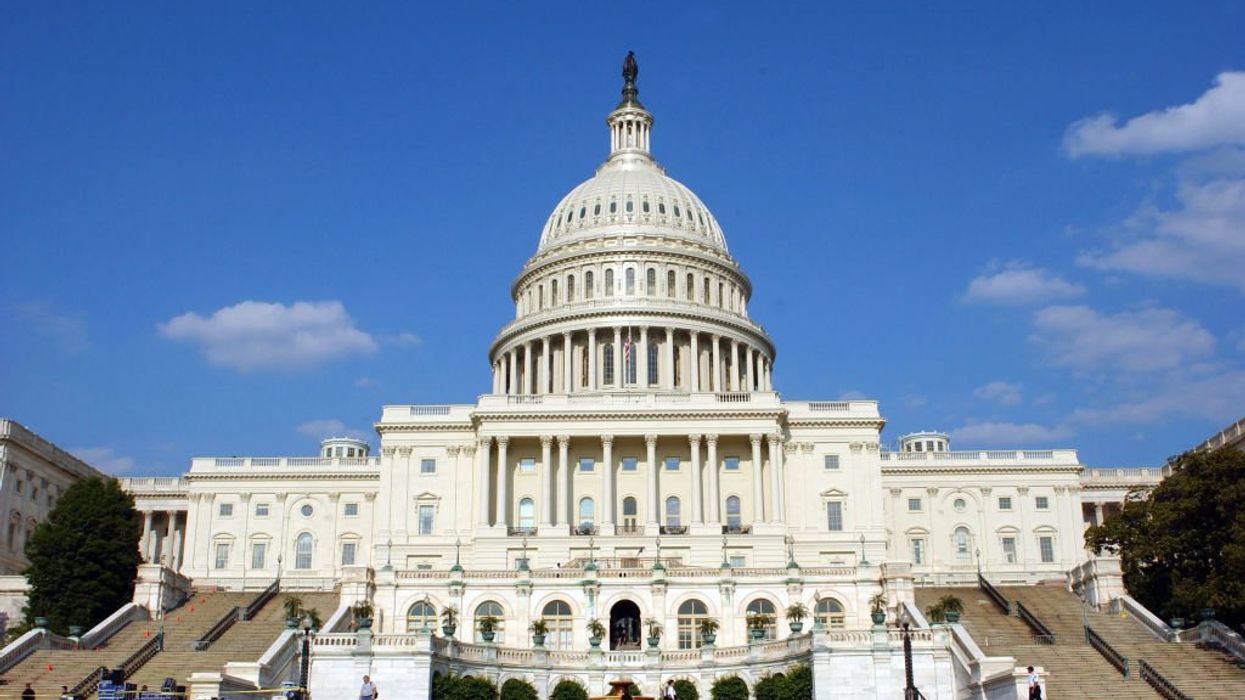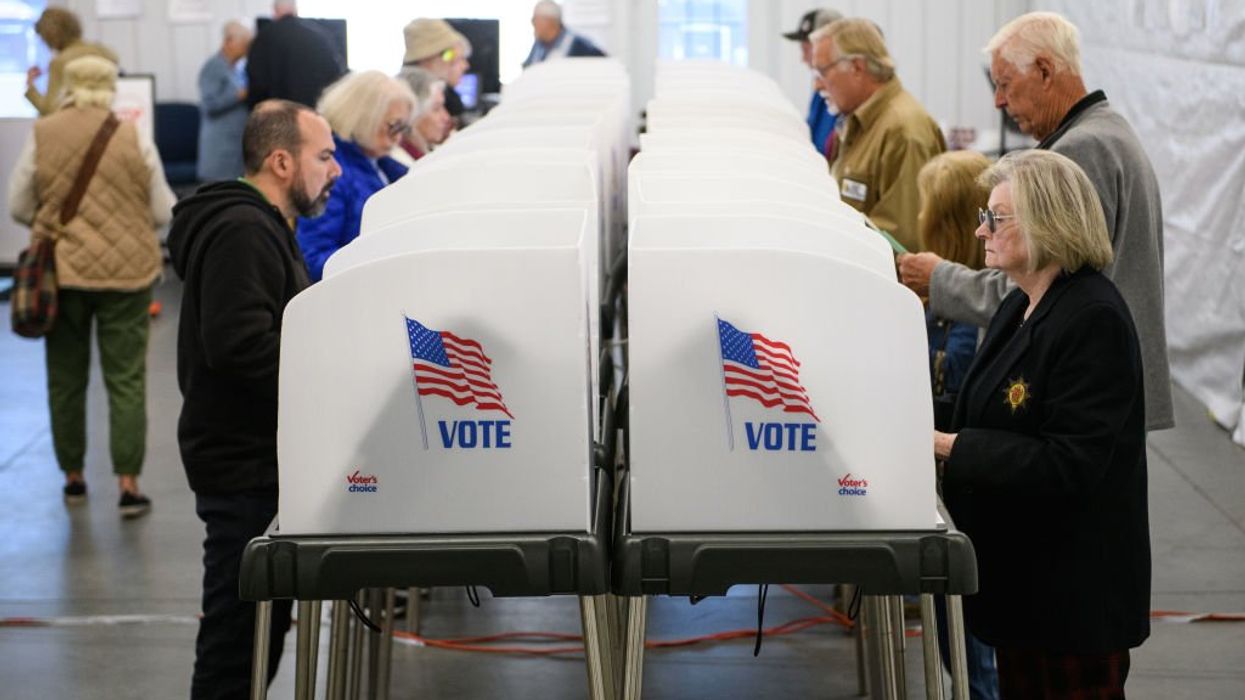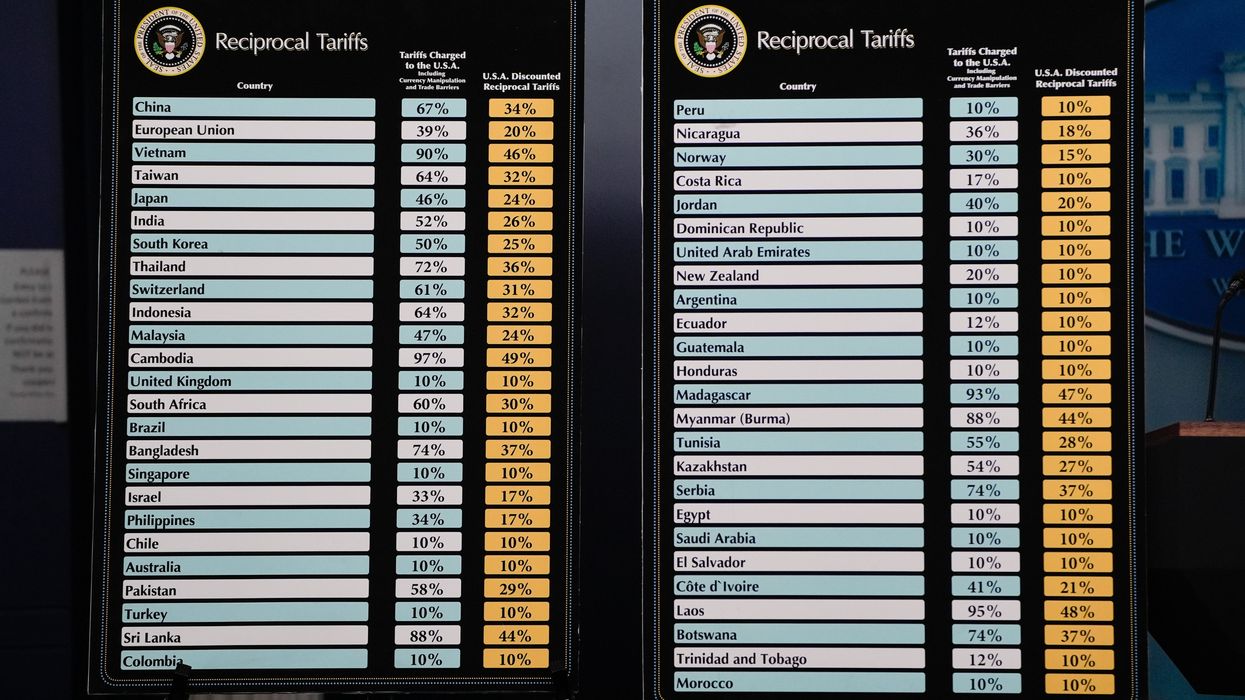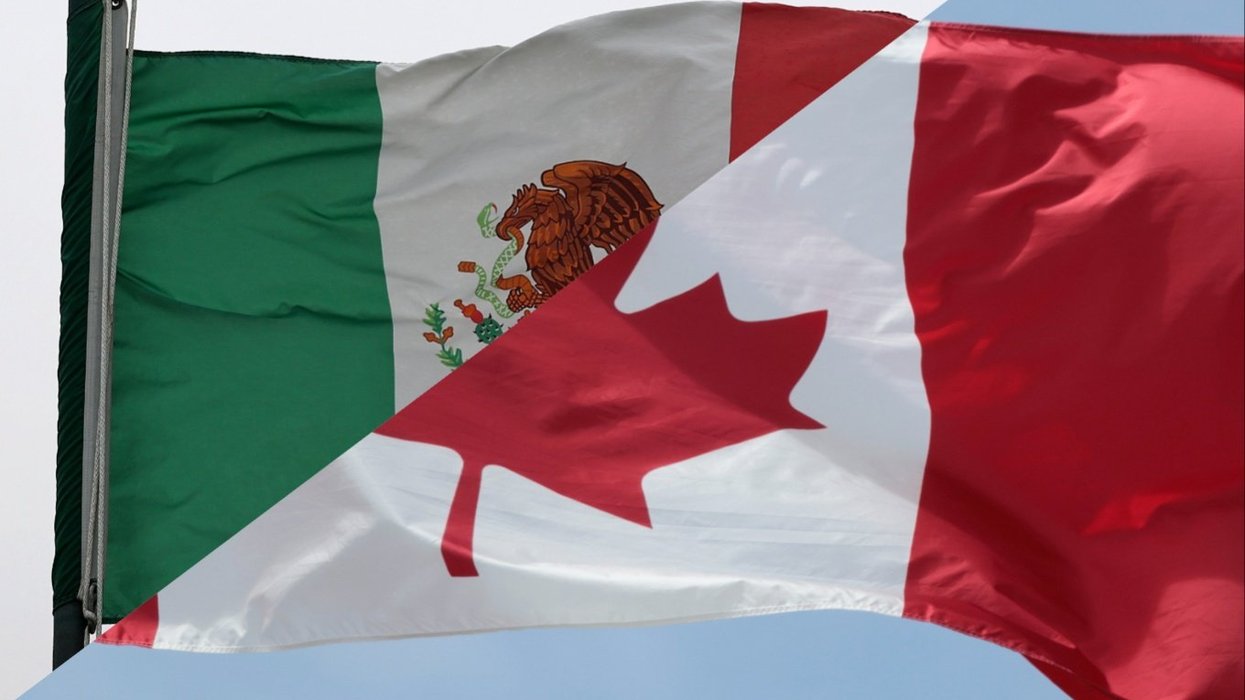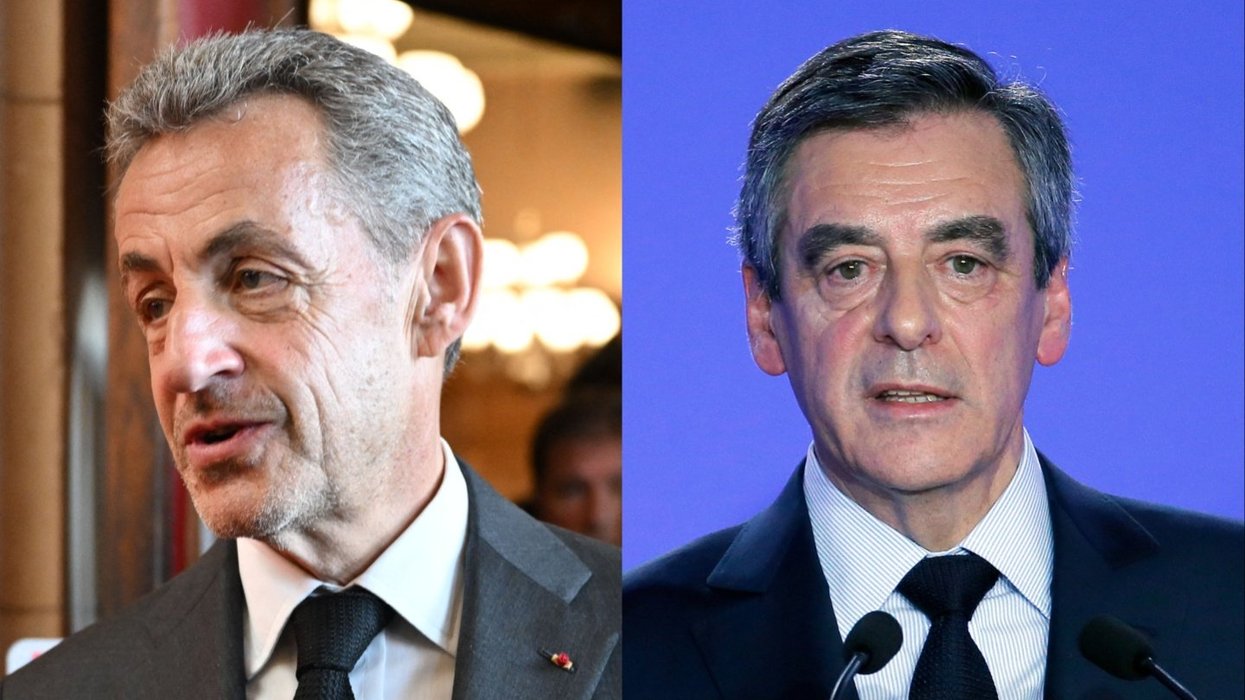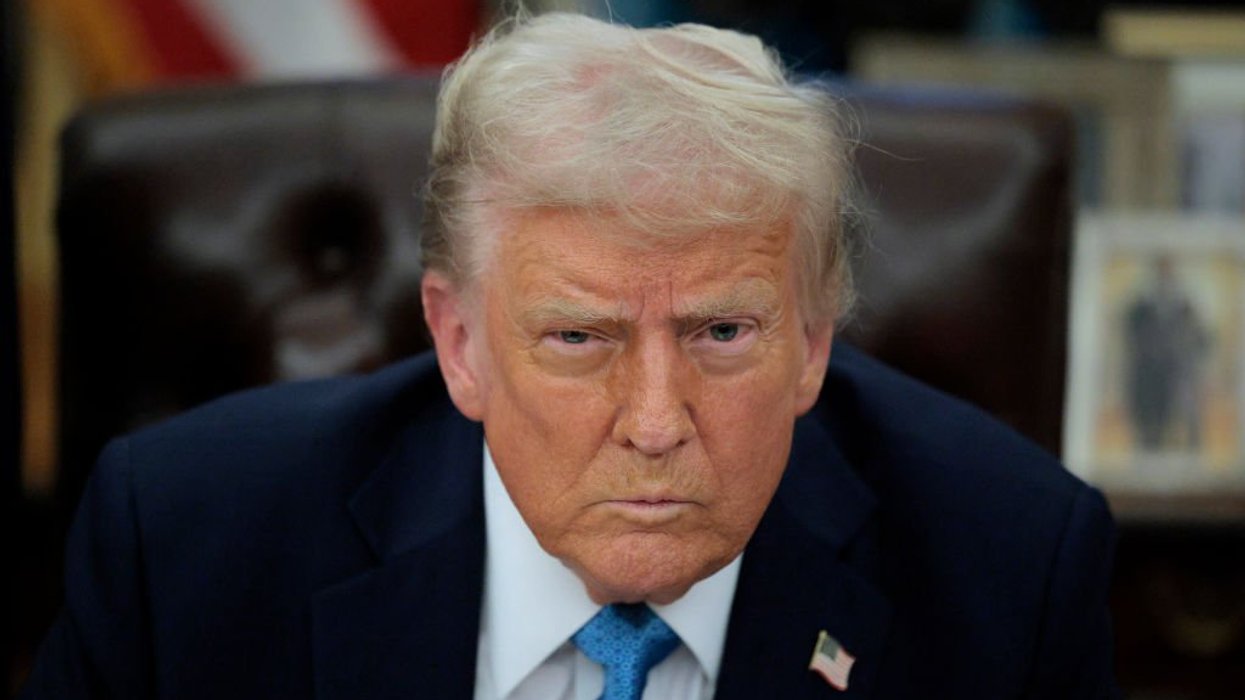I want to have a frank conversation with you today on the things that we are facing as a nation, the things that are really…these suck. And I want to talk to you a little bit about how you feel about them.
ISIS, and when I say ISIS, I mean about we all feel something is coming. We have global terrorists. We have anti-Semitism on the rise. We have Russia trying to assert themselves again. So you have ISIS. You have the rule of law. Do you feel like being a law-abiding citizen matters anymore?
Unity, civil unrest, how are we doing on that? Your economy, the economy…? When I give you all of these, as I go through them, I want you to ask yourself what, who, when, how can we solve these things?
Let’s start at the top, ISIS. Let’s just look at that one thing. As ISIS continues to fight and demolish the towns in Iraq and Syria, airstrikes haven’t stopped them at all. Regular citizens, dads and sons, they’re left with no choice but to, you know, pick up arms and defend their towns. You want to stop them…how? Who? What? When? When? How?
Go to the rule of law. Illegal immigration, the president went around Congress, abused executive power. Here he is.
VIDEOPresident Obama: There are actions I have the legal authority to take that will help make our immigration system more fair and more just, and I took them last week.
Okay, he said earlier that he didn’t have that legal authority, so do you really feel as a person that if you obey the law, it works out to your advantage? Millions of people now likely going to gain some form of amnesty, and despite promising to fight this, the GOP is backing down from that fight. How is the rule of law doing?
Which brings us to division and civil unrest. In Ferguson, riots after the grand jury decision shows how deeply divided and close to boiling over we are. We are a nation divided against itself. You don’t even have to go to this. You can just go to Black Friday and see how we’re fighting over underpants. It’s ridiculous.
And then there’s the economy. America’s national debt, it just surpassed $18 trillion with a yawn. The feds are celebrating our recovery, but historic comparison isn’t really so joyful. According to the economists, this is the worst employment recovery of any postwar American bounce-back in postwar history. GDP recovery is the second worst. Real GDP per capita, barely above where it was when Bush was in office, and real median household income is worse. Are you better off than you were under George Bush? The answer is no.
So when you look at all of these things, and I’m just touching the surface here, you look at all of these things, what is going to solve these? Who is going to solve them? How are we going to solve them? When are we going to solve them? How can any of these be solved?
See, what they have in common is they are all powerfully overwhelming, and there is no end in sight. No matter how many terrorists we kill, it’s like fire ants, they just keep coming back. No matter how much we protest or vote, our government continues to grow, sends us deeper into debt. They ignore the lie, and they divide us.
These problems are so huge that we feel helpless. I keep saying that people instinctively know something is coming. We see it in TV news. The economy is better, but no, it’s not. You can keep your healthcare. No, it’s not. The script doesn’t even come close to matching the reality on the ground, and we know that. There is such a huge disconnect.
So what, who, when, how are we going to solve these things? Well, I’m going to say something I don’t think I’ve ever said before. Let’s look to Hollywood for the answer. Yeah, yeah, I just want to do that for about two minutes here, because even though they miss the mark so often, they are in the business of trying to connect with the mood of the American people.
And I want you to notice something, a trend in the movies. There are now two types of movies that are very, very popular, and I’m going to show you the two trends. The first trend is this. You have Son of God. You have Noah, Heaven is for Real, Exodus, Mary Mother of Christ, God’s Not Dead, A.D., all of these things.
Now, Hollywood, granted, screws a lot of these up, like Noah. I mean, the giant rock people, that wasn’t really a biblical thing, and who knows what Exodus is going to have. Maybe Al Gore is going to come out and part the sea. I don’t know, but the point is there is a mood for this. There is a mood for this, and so they’re trying their best to come up with faith-based movies.
Now, what’s the other big trend in Hollywood right now? Superheroes, Captain America: Winter Soldier, Amazing Spiderman, X-Men: Days of Future Past, Transformers, Guardians of the Galaxy, all superheroes. They’re making a ton of money. These things, blockbusters. Faith-based movies, blockbusters, and this is coming from an industry that ignores that market.
So why is it happening? May I try and answer that question with another question: when? When was the last time we saw something like this happen before? Do you know? Same decade the characters like these were created, Green Hornet, Tonto, the Lone Ranger, the Green Arrow, which is a TV show again, Superman, all of them from the 1930s. And the first team of superheroes, the Justice Society of America, came out in 1940. What was happening during that time period?
Was our economy good? Was our economy good? No, Great Depression. Was there a buildup to war that we saw villains beyond our wildest imaginations? Yeah. Everything back then seemed insurmountable. Everything was too big to handle, and so American needed two things. They needed a superhero or they needed something that revolved around faith to embolden us, to show us that God is here, we’re going to make it, or there’s going to be a Superman.
Now, both times, in the Great Depression and now, we have tried to elect a savior. Now, how has that worked out as we tried to elect a savior? FDR was elected for four terms in office, four terms, and what did we do? We looked to a guy who could manage all of this. In his case, not a savior, we looked for like a dad or a grandfather. We looked for somebody who could just take all these problems and just solve them. We look to an Ivy League graduate to be president.
We think their big brilliant brain is going to somehow or another solve the riddle, fix all of these problems, because our little brain can’t figure all those things out. We can’t wrap our mind around $18 trillion in debt. That’s why we need either a savior or a superhero. They’ll solve it. It’s a lie. One person can’t.
People today laugh at the idea of a common sense farmer in the White House, but isn’t that exactly what we really need to return to? I think somebody like Charles Barkley is more fit to be in the White House than most of the polished brilliant politicians and Ivy League scholars that we have today. We need an actual leader that’s unafraid to speak common sense truth, unafraid of the mob mentality in public.
I get the feeling that, you know, I’m not going to agree very much with Charles Barkley. He’s been in the news lately, but he is unafraid to speak the truth. Whatever side that puts him on, he’s going to tell you. He speaks the truth, and it’s common sense, which brings me back to Rudyard Kipling, that poem that I like so much, The Gods of the Copybook Headings.
“As it will be in the future, it was at the birth of Man, There are only four things certain since Social Progress began, That the Dog returns to his Vomit and the Sow returns to her Mire, And the burnt Fool’s bandaged finger goes wabbling back to the Fire; And that after this is accomplished, and the brave new world begins, When all men are paid for existing and no man must pay for his sins, As surely as Water will wet us, as surely as Fire will burn, The Gods of the Copybook Headings with terror and slaughter return!”
The Gods of the Copybook Headings, truth, universal principles, common sense things—water will wet, fire will burn. We can deny it all we want, but once there is a fire and there’s nothing you can do about it, oh, all of a sudden you’re like okay, yes, fire will burn, a return to common sense, and you either come back to that gently or with terror and slaughter. And I contend those times are now upon us, common sense waiting to be tapped, but too many refuse to bow down to it.
As an alcoholic, I can tell you this, if you don’t bow down to common sense, it will take you out, with terror and slaughter return. So we’re searching. We’re searching. This is a good thing, recognize that history repeats itself. We’re searching for a superhero, a saint, religion. We tried the superhero thing back in 2008. It didn’t work out. The other option is religion, but is that going to work out?
May I suggest it’s faith that we should be looking for? It’s popular to bash people of faith or religion today. I mean, at this time of the year especially, atheists are putting up billboards throughout the Bible belt. One of them reads, “Dear Santa, all I want for Christmas is to skip church. I’m too old for fairy tales!” How is that bringing us together? How is that helping their cause? Is that one of those things, like quite honestly, some faith movies, I think, are like this. They’re like ah, gotcha! Does that bring us together at all?
Recently, prominent scientists have likened the teaching of creation and intelligent design to child abuse. Now, at least for now, these are harmless and sad jabs, but where will they be in five, ten, twenty years of that ideology, that teaching God is equal to child abuse? Climate alarmists are already calling for jail time for deniers. Is it really that far out of reach to suggest that this could extend to creation?
Let’s look at the trends. The trends are that we are a nation looking for answers, and Hollywood is just a leading indicator of that. Some of us are saying it’s God. Some of us are just escaping into the world of superheroes. They’ll solve the NSA. That’s what The Winter Soldier was about. He’ll solve the NSA problem for us.
He doesn’t exist, guys. It’s up to us. But as we bash religion because that’s always…as it starts to grow, so does the darkness. The light gets stronger. So does the darkness. So let me just spend a few minutes here on those who bash religion. What would the world be like without religion, without Christians and Jews in particular?
Do you know how many Christian churches there are in the United States of America? Christian churches, there are about 300,000 Christian churches in America. In synagogues, there is about 3,700. So, now what does that mean in total here in the United States? That makes about 56 million Christians and 6 million Jews. That’s a lot of people.
But what do those people do? Those people, the 56 million Christians, have donated $100 billion, $100 billion. Now, this is far and away the highest amount donated by any other group. You take out Christians, and you don’t have $100 billion for charity. This accounts, by the way, for 30% of all charity. So without Christians, you lose that.
By the way, 75% believe in God, so 75% say yeah, there is a God. This makes us the number one most charitable nation on the planet and the strongest Christian nation on the planet. The money part only tells a little bit of the story. Most churches, and there are bad apples, strive to positively impact the community, and the same thing with synagogues.
Three quarters of Americans believe that a church near you, a church in your area, is actually good for your area. What was the percentage I just said, Tiffany? Okay, they know it’s a positive thing, because they know that church is going to help the needy, provide support to addicts, struggling marriages, the disabled, the poor. And that’s just locally.
What are churches doing and synagogues? What are we doing? Hundreds of thousands of Americans give up their lives to become missionaries. Countless children and families in Africa alone have had Americans to thank, not in a military uniform, but people who come from churches that have given them access to clean water, malaria, food, school supplies, schools themselves, healthcare.
This is who we are. This is what made us great. We’re good. We are not the people who wait around for somebody to save us. We lead. This is why the world looks to America first when there’s a problem. They’re not really looking to America and the soldiers. They are looking for the ones who give relief first, and it is that Christian, Judeo-Christian value that makes our soldiers so great.
We have to stop looking for a superhero and return to the principles and the values that make us strong. There is no one person. There isn’t. E pluribus unum, out of many, one. Okay, so we have to have unity, right? May I suggest e pluribus unum means and they gathered themselves together and became of one accord? When we’re of one accord, we will find the solution. The solution is when we worship and serve one God.

